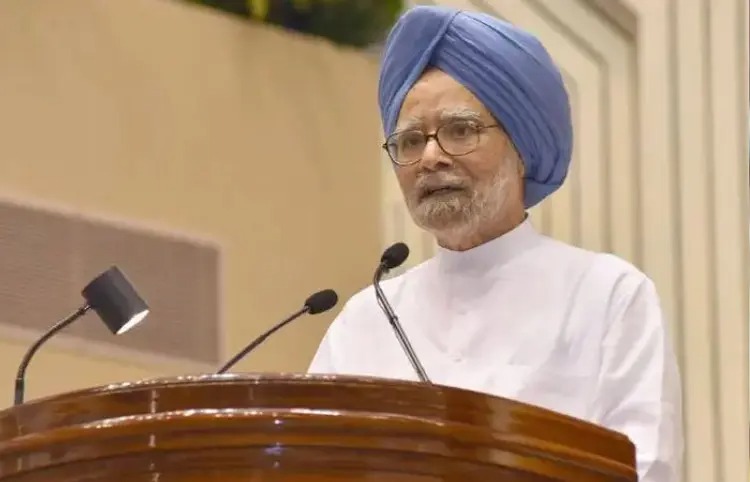
Manmohan Singh’s historical budget of 1991: Former Prime Minister of the country and Dr. Manmohan Singh died late Thursday night. He breathed his last at the age of 92. When his health deteriorated late in the evening, he was admitted to the emergency department of AIIMS due to age-related health problems. Dr. Manmohan Singh was not only the Prime Minister of India, but he also served as the Finance Minister. He has many achievements to his name.
During the 1970s and 1980s, late former Prime Minister Dr. Manmohan Singh held several senior and important positions in the Central Government. He held positions such as Chief Economic Advisor, Governor of the Reserve Bank of India and Chief of the Planning Commission. But a late night phone call in 1991 not only changed his entire life but also brought him into the ranks of great people.
In the 90s, when the country was in a major economic crisis, Manmohan Singh, as Finance Minister, took major decisions which completely changed the picture of the Indian economy, his special contribution was economic liberalisation. For which he will always be remembered.
Many big works including ending the license raj
Dr. As Finance Minister in 1991, Manmohan Singh made policies that proved to be a milestone for the country’s economy. These policies ended the licensing regime, opened the economy to foreign investment and ushered in an era of globalization, privatization and liberalization that changed the direction of the country forever. As Finance Minister in July 1991, he faced India’s worst economic crisis and came out of it.
When India’s economy collapsed
This was the time when foreign exchange reserves were almost exhausted and the inflation rate in the country was very high. The situation had become so bad that the country was on the verge of bankruptcy. At that time, Narasimha Rao’s government was at the center and amid economic crisis, the rupee collapsed and lost 18% against the US dollar. The price of crude oil skyrocketed due to the Gulf War. This was the time when India had foreign exchange reserves of only $6 billion, which was enough for a maximum of two weeks. Fiscal deficit reached almost 8% and current account deficit reached 2.5%.
Historic budget of 24th July
In such a situation, the then Finance Minister Dr. As the country’s 22nd Finance Minister, Manmohan Singh made major announcements for economic liberalization in his first budget speech (24 July 1991). This budget of 1991 is also called the budget that changed the face of the Indian economy. Mainly the corporate tax rate was increased by one point. Apart from this, other decisions talked about reduction in import duty, reduction in customs duty, simplification of licensing process for imports as well as liberalization, privatization and globalization. Private companies were given permission to import. The limit of foreign investment was increased.
Opened doors for foreign investment in India
Increase in corporate tax and implementation of TDS was also announced in the budget. Along with this, work was done to allow private sector participation in mutual funds. Not only this, to increase the almost exhausted foreign exchange reserves, the Reserve Bank of India decided to pledge Indian gold with other institutions including the Bank of England and an amount of about 600 million dollars was raised. Thus the policies and reforms brought by Manmohan Singh opened the doors to foreign investment in India.
After this when Dr. Manmohan Singh was the Prime Minister of the country for two consecutive terms from 2004 to 2014, during which he also took many historic decisions and started many programs including MNREGA, Right to Education Act, Aadhaar and Direct Benefit Transfer.
MNREGA and RTI
In the year 2005, the government led by former PM Manmohan Singh started MNREGA. In which every rural family was guaranteed 100 days of wage employment, in which a huge improvement was seen especially in the livelihood of the villagers. Apart from this, to make the government accountable, the Right to Information i.e. RTI Act was implemented in June 2005.
Introduction to Aadhar Card
One of the important achievements of Manmohan Singh’s tenure was the introduction of Aadhaar card. Aadhaar card scheme was launched in January 2009 to ease access to various services, today Aadhaar has become the identity of all the citizens of the country.
Food security and agricultural loan waiver
Other major achievements of Manmohan Singh’s tenure include Rs. During his second term in 2013, he enacted a loan waiver of Rs 60,000 crore and the National Food Security Act to ensure food security for the country’s poor.
 look news india
look news india
